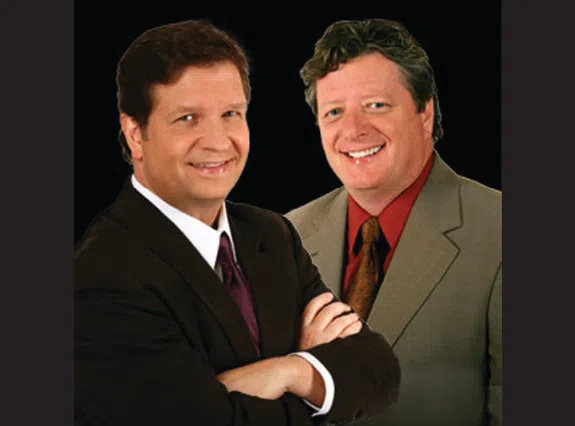President Trump backed a secret plan to release Americans held hostage by the Venezuelan regime, a move that upset the State Department and top national security advisors.
Last week, Trump’s Special Envoy for Special Missions, Ric Grenell, contracted a private jet to travel to Antigua where he met with Venezuelan officials and took custody of Joe St. Clair, 33, a former military veteran who had been arrested and imprisoned about six months ago.
Venezuela is believed to continue detaining five remaining U.S. citizens and at least four Venezuelans who hold U.S. residency status.
After successfully obtaining his release Tuesday, Grenell flew back with St. Clair to Washington.
News of St. Clair’s release – a story broken by Newsmax – upset the State Department and other national security officials and led to a press report in the New York Post suggesting Grenell had gone rogue and undertook the operation without the President’s approval.
But sources close to the White House tell Newsmax that Trump fully approved Grenell’s mission and instructed his envoy to undertake the mission without informing other officials.
The Washington Post reported that the State Department was not involved in talks about sending Grenell to Antigua, which “caught everyone off guard,” including Rubio and the department’s Bureau of Western Hemisphere Affairs.
The source told the Post, “The president kept the group really small.”
Shortly after St. Clair’s release, Grenell announced the U.S. would continue an exemption for Chevron to trade oil despite Venezuelan sanctions.
Grenell’s Chevron announcement reportedly angered a trio of South Florida Cuban-American congressmen who have advocated a hard line against Maduro.
Reps. Carlos A. Gimenez, Mario Diaz-Balart, and María Elvira Salazar, quickly threatened to vote against the Trump-backed “Big, Beautiful’ tax and spending package.
The package ultimately passed the House Thursday morning with a razor thin margin of just one vote, but only after the three lawmakers agreed to vote for the package. For doing so, Trump had agreed to their demands not to extend the Treasury Department’s Chevron license set to expire on May 27.
Rubio also announced that there would be no extension of Chevron’s license.
The Post reports that these events highlighted ongoing struggles between Rubio, who is also the acting White House national security adviser, and Grenell, who was the acting director of national intelligence during Trump’s first term in office.
Grenell is considered a long-time Trump loyalist whose duties have also included serving as president of the Kennedy Center and overseeing federal response to California’s wildfires.
“Ric Grenell is a loyal and valued member of President Trump’s team,” White House spokeswoman Anna Kelly told the Post.
But much of the disagreement between Grenell and Rubio focuses on Trump’s own vision for resolving problems with Venezuela.
Rubio, who is a Cuban-American, has long opposed any concessions to Venezuelan President and strongman Nicolás Maduro.
Trump, on the other hand, has encouraged Grenell to engage with Venezuela to deal with thorny issues like deportations, the country’s human rights abuses and growing ties with China.
Just after Trump took office, Grenell met with Maduro in Caracas to urge him to take in Venezuelan migrants that the president wanted deported.
At that time, Maduro released six Americans and agreed to accept deportees. It was not clear what incentives the United States offered at the time.
The next month, the Florida lawmakers who threatened to vote against the budget bill met with Trump and advised him not to budge on Venezuela and to reimpose maximum pressure sanctions that former President Joe Biden had eased.
Grenell’s recent talks with Venezuela, resulting in St. Clair’s release, came while the State Department was conducting its own talks, according to the Post.
One National Security Council member told Newsmax that Grenell’s separate approach with Venezuela was not usual.
“The President is doing this with his special envoys almost everywhere, bypassing the State Department and bureaucracy, to try to do deals quickly,” the source said.
© 2025 Newsmax. All rights reserved.






